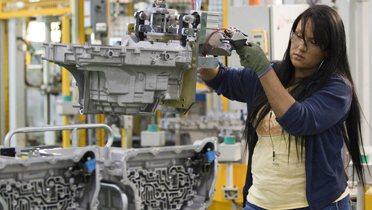America has lost millions of manufacturing jobs since 1980, which has been a serious economic blow to many U.S. metropolitan areas.
In response, metros have pursued an array of economic development strategies, some aimed at protecting or enhancing their manufacturing base, others at diversifying their local economies and attracting new kinds of industries, particularly service firms.
This new report assesses public policies and economic development strategies in eight U.S. metropolitan areas that had a significant specialization in manufacturing in 1980 and lost manufacturing jobs between 1980 and 2005—Charlotte, NC; Cleveland, OH; Grand Rapids, MI; Hartford, CT; Indianapolis, IN; Louisville, KY; Rochester, NY; and Scranton, PA. For each metro, the report describes the evolution of its manufacturing economy between 1980 and 2005, the major economic development organizations and actors, the major policies and strategies that were adopted to try to shape the area’s economic future in the wake of manufacturing job losses, and other factors that influenced economic development in the area.
The responses to manufacturing job loss in the eight metropolitan areas offer important lessons for policymakers and practitioners trying to respond to the most recent wave of manufacturing job loss in U.S. metropolitan areas. While economic strategizing was important, many dynamics, including the business strategies of major firms, transportation costs, costs of labor and land, quality of education, influenced an area’s economic trajectory.
“There are no guarantees of success; even well-conceived and implemented policies may not be strong enough to overcome the impacts of broader economic trends and policies over which regional policymakers have no control,” the report concludes.
The Brookings Institution is committed to quality, independence, and impact.
We are supported by a diverse array of funders. In line with our values and policies, each Brookings publication represents the sole views of its author(s).



